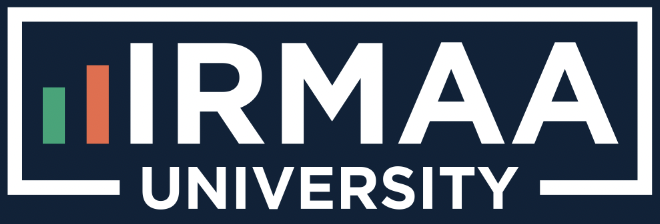
Health care coverage and costs in retirement can be difficult to comprehend and furthermore prove to be rather taxing to plan for. We are here to help guide you through the process of understanding the importance of such planning and reap the benefits of confident financial security.
Health care coverage and the costs in retirement are two factors that must be seriously considered when configuring a practical financial plan for retirement. The importance of fully understanding and having an accurate estimate of what one can expect to pay cannot be stressed enough. Without a complete understanding of health care coverage options in retirement the costs cannot be accurately accounted for. Taking the time to educate yourself is of the utmost importance in achieving financial security in your retirement.
Health Care Costs During Retirement
There are many variables that must be considered when configuring what your health care costs during retirement could potentially be. Such factors include:
– What health care coverage you select;
– Your overall health and health history;
– Inflation; and
– The amount of Social Security benefits to be expected.
These are just to name a few. Accurately estimating health care costs during retirement takes much time and consideration and leaves much room for error when calculating. However, because this particular budget item happens to be the most expensive and most threatening in terms of associated risks, taking the time to accurately estimate your health care costs in retirement is therefore of the utmost importance.
What Health Care Costs And Coverage Options In Retirement Are Available?
There are many different types of health care coverage options available to you in retirement.
• Employer-provided insurance
If applicable, the foundation for your health care coverage in retirement should be employer-provided based. This health care coverage option offers to-date the most affordable insurance solution when premiums, co-pays, deductibles and prescription drugs are factored in. In fact, believe it or not, some Americans nearing retirement age say that the benefits are so worthwhile that they would even consider delaying retirement to remain in the plan!
• Private insurance coverage options
If you are one of the many Americans that chooses to or is forced into early retirement (before the age of 65 when you would be eligible for Medicare), that is a small business owner, or that works for a company that does not offer employer-based health care coverage – private insurance coverage will then become your mandatory option for health care. If you find yourself in the market for private health care coverage, the government’s new website will help you to find the most affordable health care coverage from a private provider assuming that you are in good health. Keep in mind that with private health insurance coverage prices tend to be on the higher side, coverage will be based on an individual basis, factoring in health and age, in certain medical circumstances the provider can cancel the policy, and as you age the premium is likely to increase.
• Government insurance
Contrary to common belief, there is a difference (a big difference in fact) in Medicare and Medicaid. Though their names sound similar the two are very different. Medicare is a federally provided insurance program for the elderly (and some disabled), where Medicaid is a federally provided insurance coverage for those Americans with limited means or that are living at or below the federal poverty level.
Medicaid generally covers all medical expenses, but it very difficult to qualify for. Medicare on the other hand is available to all seniors aged 65 and over.
• Medicare
Medicare is a federally governed health care program that provides limited health care coverage to the elderly and aging – 65 and over –, those under 65 with certain disabilities and those of any age who suffer from severe kidney disease or failure. Eligibility for Medicare is approved for individuals and couples that have worked for a minimum of 10 years under a Medicare-taxed employer.
Medicare does not cover all health care costs during retirement. In fact, according to the Employee Benefit Retirement Institute, on average Medicare health care costs and coverage in retirement only cover approximately 51 percent of expenses.
Medicare Health Care Costs And Coverage In Retirement
The Medicare program actually consists of different parts or rather plans that cover specific medical areas. Here is a very brief overview touching on the basics of each plan.
– Medicare Part A
Medicare Part A is referred to as “hospital insurance” because it covers inpatient hospital stays.
– Medicare Part B
Medicare Part B is referred to as “medical insurance” because it covers outpatient treatments and doctor’s visits. Specialists, co-pays and prescriptions are not covered.
– Medicare Part C
Medicare Part C is referred to as a “medical advantage plan” because it combines the benefits of Part A & B with private provider coverage.
– Medicare Part D
Medicare Part D is prescription drug coverage.
Estimating Your Health Care Costs During Retirement
Properly estimating your health care costs during retirement is one of the most important factors that goes into building a practical financial plan for your future. At Jester Financial we know that a well-constructed, thought out, budgeted and precise financial plan ultimately offers you and your family financial security during your golden years. Contact us today, or use our FREE online calculator to generate a fast, reliable and accurate estimate of what you can expect your health care costs during retirement to be.
What is HealthcareRetirementPlanner.com
Healthcare Retirement Planner (HRP) is a comprehensive solution that helps identify potential problem areas in a retirement plan and design options to minimize the problem.
On an ongoing basis, HRP conducts research and aggregates all data to be used in its analysis algorithm. Pulling from areas such as The Congressional Budget Office, Centers for Medicare and Medicaid, polling individual insurance carriers across the United States along with private research firms, and positions HRP as having the most accurate information and calculations available.
Within the calculation process there are many variables that need to be considered, as the solutions are customized to each individual’s retirement plan. Variables that are required to analyze financial situations include, but are not limited to: age, gender, location, overall retirement income, types of retirement income, inflation and COLA. HRP has simplified this process.
The process of using HRP is straight forward. Simply by answering a few simple demographic questions, entering retirement asset information and income, along with assorted growth rates, you are supplied with a detailed year by year analysis that projects out 20+ years as to how the investors’ current financial plan will be impacted by their Medicare costs and the impact on their Social Security benefit.
Who is HealthcareRetirementPlanner.com?
We are comprised of Financial Professionals, Medicare Specialists, Technology Experts and the foremost authorities on how this one cost will affect your bottom line especially when your health is on the line.
There are many financial institutions that do tremendous work when it comes to asset building, planning for college or creating stock/bond/mutual fund portfolios, but addressing concerns of affording health care costs…well for that, there is us.
Healthcare Retirement Planner was created with one purpose in mind: to provide data, education and tools necessary to help the financial industry create better financial futures and to plan for one of the biggest expenses in not only retirement, but life – their health.
In a time where health costs dominate the media, the political landscape and your bottom line, retirement planning with all of the facts have never been more important.
Origin of Our Data for Healthcare Cost in Retirement
On an ongoing basis, HRP conducts research and aggregates all Healthcare data to be used in its analysis algorithm. Pulling from areas such as The Congressional Budget Office, Centers for Medicare and Medicaid, polling individual insurance carriers across the United States along with private research firms, and positions HRP as having the most accurate Retirement information and calculations available.
